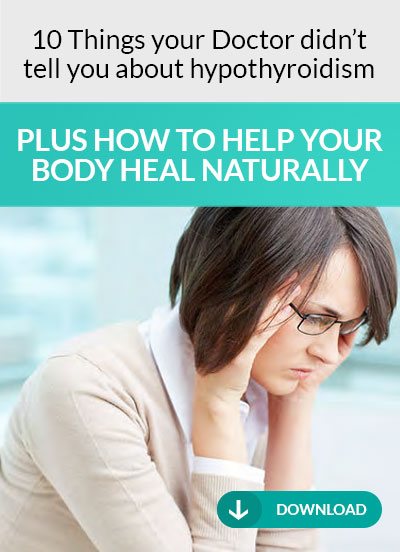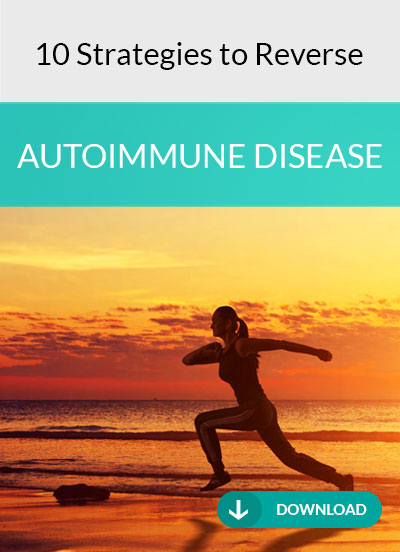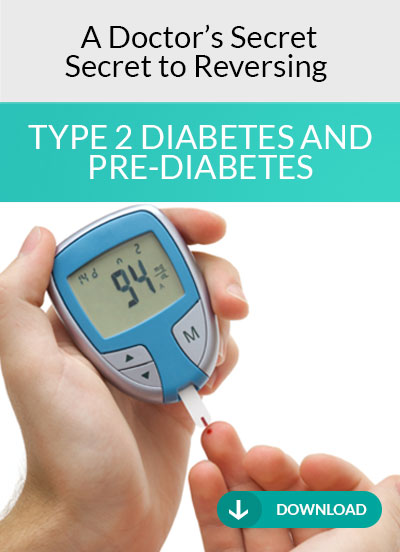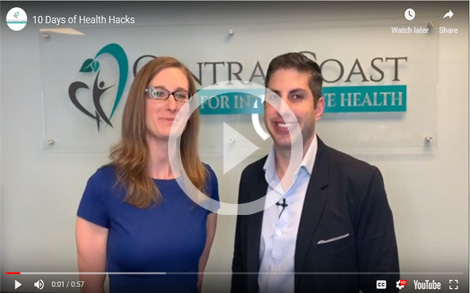How To Get Rid of Food Cravings
If you’re craving salty food, sugar, or carbs, you know how frustrating it can be. No matter how hard you try, you can’t get baked goods, sweets, pizza, pretzels, or potato chips out of your mind. Next thing you know, those foods are in your shopping cart or on the table in front of you in a restaurant. If you give in to your cravings, it can sabotage your efforts to stay healthy or lose weight. This is never more true than with autoimmune patients because a lot of the causes of food cravings also are the root causes of autoimmune disease.
However, there are highly effective ways to stop food from taking over your life and your health. In this blog post, I’ll show you what causes cravings for food and how to get rid of food cravings for good.
Causes of Craving Sugar and Carbs
Sugar cravings and carb cravings are some of the most common I see among Caplan Health Institute practice members. There are a number of reasons why you might crave sugar or carbs. If you want to know how to get rid of cravings for sweets, then you first have to identify the causes.
Food is literally the instructions that we give our body on how to work. If we’re feeding it the right food, it’s going to work properly, and if we’re feeding it the wrong foods, it’s not. A lot of times we crave the wrong foods due to imbalances in the body. The body is trying its best to overcome these imbalances by compensating for them with food cravings. When the body is not working right, the side effect will be certain cravings. If you give in to those cravings, you’re just feeding the problem. So, it’s really important to identify the cause of food cravings.
Let’s go over some of the most common reasons why you might want to eat every cake, pie, cookie, or loaf of bread in sight and how you can fix the problem.
Blood Sugar Imbalances and Insulin Resistance
Insulin resistance is a good example of how a dysfunction in the body leads to craving sugar and carbs. Insulin is a hormone that regulates blood sugar in your body. After eating a meal, insulin helps move glucose into your muscle, fat, and liver cells so that they can use it to make energy. In doing so, it lowers blood sugar. Insulin resistance happens when your body starts ignoring the blood-sugar-lowering signals that insulin is sending out. When this happens, blood sugar levels go high but cells are starving for energy. The pancreas has to make more and more insulin in order to lower blood sugar. At some point, even the extra insulin isn’t enough to lower blood sugar. If your body doesn’t listen to insulin, you can’t get sugar into your cells to make energy. The result? You’re going to crave sugar and carbs.
Insulin resistance is an adaptation to a sedentary lifestyle, high amounts of ultra-processed foods, and weight gain. The body does it to keep you alive. It’s not like your body is trying to harm you. People who have insulin resistance typically crave carbs, sugars, starches, and foods that will give them some quick glucose so that energy can get into the cells.
If you want to learn more about insulin resistance, I recommend you read my blog on the topic.
How to Stop Carb Cravings Related to Blood Sugar
If you want to get rid of sugar cravings, you need to balance your blood sugar. The way to stabilize blood sugar is to remove or reduce foods from the diet that are high in starch and carbs. That will stop your blood sugar from spiking up. Some people may have to minimize fruit because it can spike blood sugar.
You also want to make certain you’re eating enough calories, and eating often enough throughout the day, to avoid drops in blood sugar. When your blood sugar drops, it can cause cravings for sugar and carbs, too.
How you combine foods also can affect your blood sugar and insulin levels. Fewer ups and downs with your blood sugar mean fewer insulin spikes. When that happens, your cells can make energy naturally. This helps to get rid of cravings for sugar and carbs. You may want to buy a continuous glucose monitor to see which foods are causing blood sugar problems. The foods causing the most problems aren’t always what you might suspect.
Microbiome Imbalances
Imbalances in the gut microbiome—the collection of microorganisms that reside in your intestines—can lead to cravings for sugar and carbs. That’s because certain microbes need sugar and carbs for fuel. Imbalances in the gut microbiome can result in a Candida overgrowth. When this happens, the yeast Candida albicans turns into a pathogenic fungus.
From personal experience, I know that eliminating Candida overgrowth can stop carb and sugar cravings. I had a massive Candida overgrowth and was craving sugar like crazy. I lived on sugar, I lived on carbs. Then I got rid of the Candida and it made a huge difference. Getting rid of the Candida overgrowth made it so much easier to get off of those foods. I didn’t feel like I really needed them much after that.
How to Stop Microbiome-Related Carb Cravings
Support the microbiome through the diet and by taking probiotics. To support beneficial bacteria in the gut, eat a diverse diet that eliminates sugar and high-starch carbs and includes fiber and probiotic foods like yogurt. If you suspect Candida, it’s a good idea to work with a functional medicine provider, who can order tests to check for Candida overgrowth and other microbiome imbalances, as well as recommend anti-Candida supplements.
When you eat enough different vegetables and you’re feeding the microbiome, you will typically see an increase in Akkermansia species of bacteria, which is linked to a reduced incidence of obesity and is thought to be one of the reasons why semaglutide drugs like Ozempic® lead to suppressed appetite and weight loss. When you have a good diverse microbiome, your microbiota actually helps with maintaining a healthy weight. You don’t have to take a pill or a shot for it. It naturally does what Ozempic® would do for you without the side effects.
Addictive Proteins in Food
If you find yourself craving bread or dairy, the problem may be certain food proteins that can be addictive. Some proteins cause an opioid response. The gluten protein can get broken down into something called gluten exorphins, which act on opioid receptors in a manner similar to morphine, causing an emotional high from eating gluten. Because of this, gluten can be addictive. That’s why some people have a really hard time coming off of grains.
The same thing can happen with the casein protein from dairy. Casomorphins found in casein can act on opioid receptors. Activation of these receptors can cause an addiction to dairy, which is why some people find themselves craving dairy and have a really hard time eliminating it.
Get Rid of Bread Cravings and Dairy Addiction
This one’s pretty straightforward. You’ll likely need to summon up the willpower to avoid bread, pizza, baked goods, and anything that contains gluten. For dairy cravings, you’ll need to eliminate dairy from the diet while making sure you’re getting nutrient minerals like calcium from other sources.
Other Causes of Food Cravings
Besides carb and sugar cravings, you might crave other types of foods and drinks, including chocolate cravings and craving salty food. Here are some other reasons you might not be able to stop thinking about certain foods or drinks.
Emotional Causes of Food Cravings
Sometimes the craving is more of a mental emotional thing. This is often the case if you’re attached to a specific type of food or drink. For example, I’m working with a practice member right now who has a Diet Coke addiction. I asked her, “What do you think it is about Diet Coke? Is it the carbonation? Is it the taste? The caffeine?” But then she said that when she was growing up, both her and her mom always drank Diet Coke. It reminded her of her mom. She has an emotional addiction to it because it’s just something from her childhood that makes her feel good.
The Solution for Emotional Food Cravings
If you have an emotional attachment to a type of food, the best solution is to find out the reason for it. A functional medicine doctor may help you pinpoint the emotional reason behind your addiction, but a trained mental health professional may be best to process and overcome root causes of emotional food addictions.
What Does It Mean When I Crave Chocolate?
Cravings for certain foods are a red flag that you may be deficient in a particular nutrient. I’ve seen people have cravings for chocolate when they’re magnesium deficient. Sometimes there’s specific foods that people gravitate towards, not because of a blood sugar problem or something else, but because that particular food is high in a nutrient their body is lacking. If you want to know how to stop chocolate cravings, the best bet is to work with a functional medicine provider to test for nutrient deficiencies.
Craving Salt: What Does It Mean?
One of the top salt craving causes is adrenal dysfunction. Being in a high-stress state can affect our electrolytes like sodium and potassium because the adrenal glands regulate production of these important minerals through the secretion of the hormone aldosterone, which is involved in electrolyte balance.
When our adrenals are in a high stress state, they’re creating too much cortisol, or they’re really fatigued from chronic stress and they’re not able to make as much cortisol. Either way, you’ll see a disruption in the adrenal pathways and aldosterone can be disrupted, causing mineral imbalances and salt cravings. When the adrenals aren’t working properly, blood pressure issues are also common.
To stop salt cravings, we’ll either have practice members add electrolytes to their water or have them supplement with the LMNT electrolyte drink mix, which satisfies that craving for most people. The LMNT supplement reduces the salt cravings because they’re getting all of the sodium, potassium, and magnesium that they were deficient in.
You’re Thirsty Rather Than Hungry
Sometimes people think they’re hungry and they’re wanting food when they’re really just dehydrated. And sometimes we just need to find out if they’re drinking enough water. According to the National Academies of Sciences and the Mayo Clinic, men living in a temperate climate should drink 15.5 cups of water per day and women should drink 11.5 cups.
If You Need Extra Help
For people who are really struggling with food cravings, I recommend a supplement called CraveArrest™. The ingredients act on neurotransmitter precursors that control our appetite. These ingredients include vitamin C, B vitamins, tyrosine, and 5-HTP, which is a precursor to serotonin, a feel-good brain chemical that’s produced in the gut and is involved in appetite regulation.
How to Stop Food Cravings For Good
Let’s face it, tackling sugar, salt, and carb cravings on your own can be overwhelming. It helps to work with a functional medicine provider to identify the reasons for your cravings. Here at the Caplan Health Institute we can work with you to order the proper tests and point you in the right direction. Our coaching team will even support you through any dietary changes you need to make in order to remove unhealthy foods and feel your best once again. The first step? Schedule a complimentary discovery consultation, by phone or video, in order to become practice members (what we call our patients).
If you have autoimmune disease, getting a handle on food cravings is all the more important. Many of the issues underlying food cravings can also promote autoimmunity. We will develop a comprehensive program that balances blood sugar, restores nutrients, and tunes up the microbiome. That will help you get rid of food cravings, as well as stop the progression of autoimmune disease.
The bottom line? Food cravings are a way your body tells you that something is not working right. We can help you figure out what your body is trying to tell you, fix the problem, and put you in the driver’s seat with your health again.
Board Certified in Integrative Medicine
Certified Functional Medicine Practitioner
Institute for Functional Medicine Certified Practitioner






